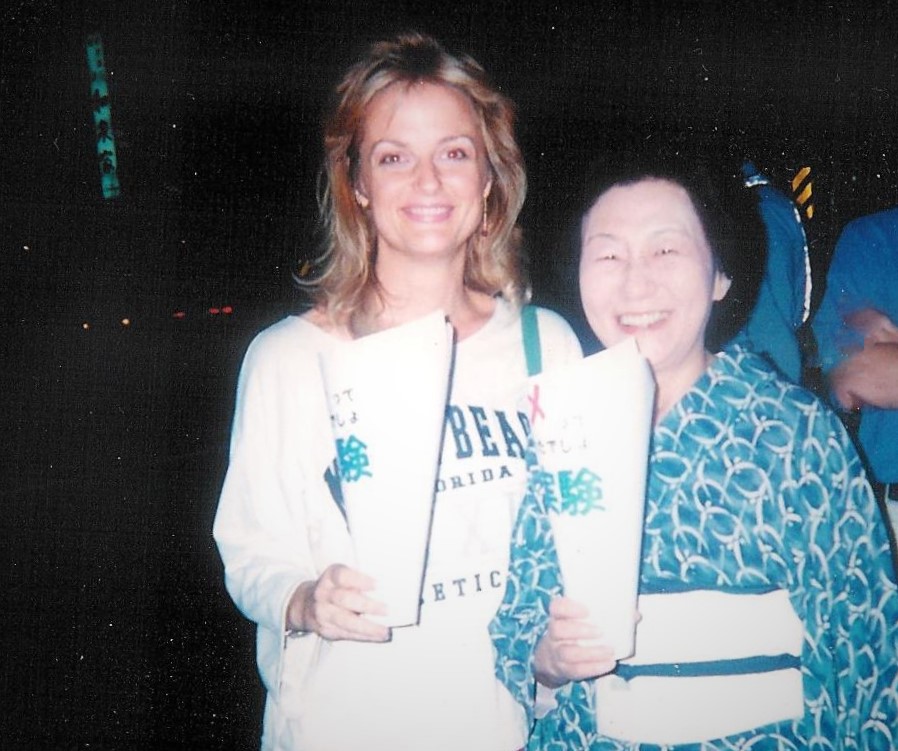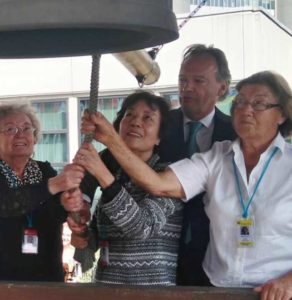It was the summer of ’95, and hundreds of us were in the sweltering Tokyo streets rallying against nuclear proliferation.
An elderly Japanese woman standing next to me turned and whispered: ‘I was in Hiroshima when the atomic bombs fell. Unlike my family, I survived. Being active, for peace… it’s the least I can do.’

And with that began my education about the dedication, resilience, and impact of war witnesses.
Meeting this atomic bomb witness so filled with grace and forgiveness, I wondered: How do people pick up the pieces when their entire world has been destroyed? How do they retain kindness and hope even after enduring unspeakable violence?
I set out to interview WWII war witnesses across the world – and quickly discovered shared threads of experience. The Warsaw Upriser whose youth had been sacrificed fighting for freedom, the Americans of Japanese descent subjected to stateside internment, the German Holocaust survivor rescued by the Kindertransport as her beloved parents perished in concentration camps…
Nationality had labeled them enemies but spirit connected them in peace even decades later.
20 years following that Tokyo rally, I was living in Austria and volunteering in train stations to support refugees when the first migration wave hit.
The heartbreaking stories of people fleeing chaos and destruction in Syria, Afghanistan and elsewhere echoed similar themes from the WWII witnesses. But there were contemporary twists to the hell of war.

71 people had recently been found suffocated to death in the back of a truck on an Austrian highway while being smuggled into central Europe. Thousands were drowning in the Mediterranean – while traffickers were making obscene profits from their desperate attempts to escape.
I soon became involved in mentoring young women of a refugee background, and we created an intergenerational storytelling initiative called SDG 5 Thrive. This soon expanded to human trafficking prevention and awareness-raising efforts, along with developing a multimedia hub and holding events in London and Vienna.

But as I met more and more victims of contemporary conflicts, I thought back to the WWII witnesses I’d interviewed and their continuing struggle for justice.
I led a peace conference at the UN Vienna in 2016, uniting three WWII witnesses for the first time: Hazel Richardson of England, Reiko Yamada of Japan, and Rosina Wernig of Austria. It was touching seeing them ring the UN Peace Bell together.
Since then, I have interviewed war witnesses from many countries and tried to understand how they had coped with ongoing devastation – and then gone on to create personal peace and societal progress.
My dream is to conduct further in-depth interviews with witnesses, from both historical and contemporary conflicts, and then consolidate their insights into a book and eLearning material.
Until then, the War Witnesses: Women project will continue. After all, ‘Being active, for peace… it’s the least I can do.’











